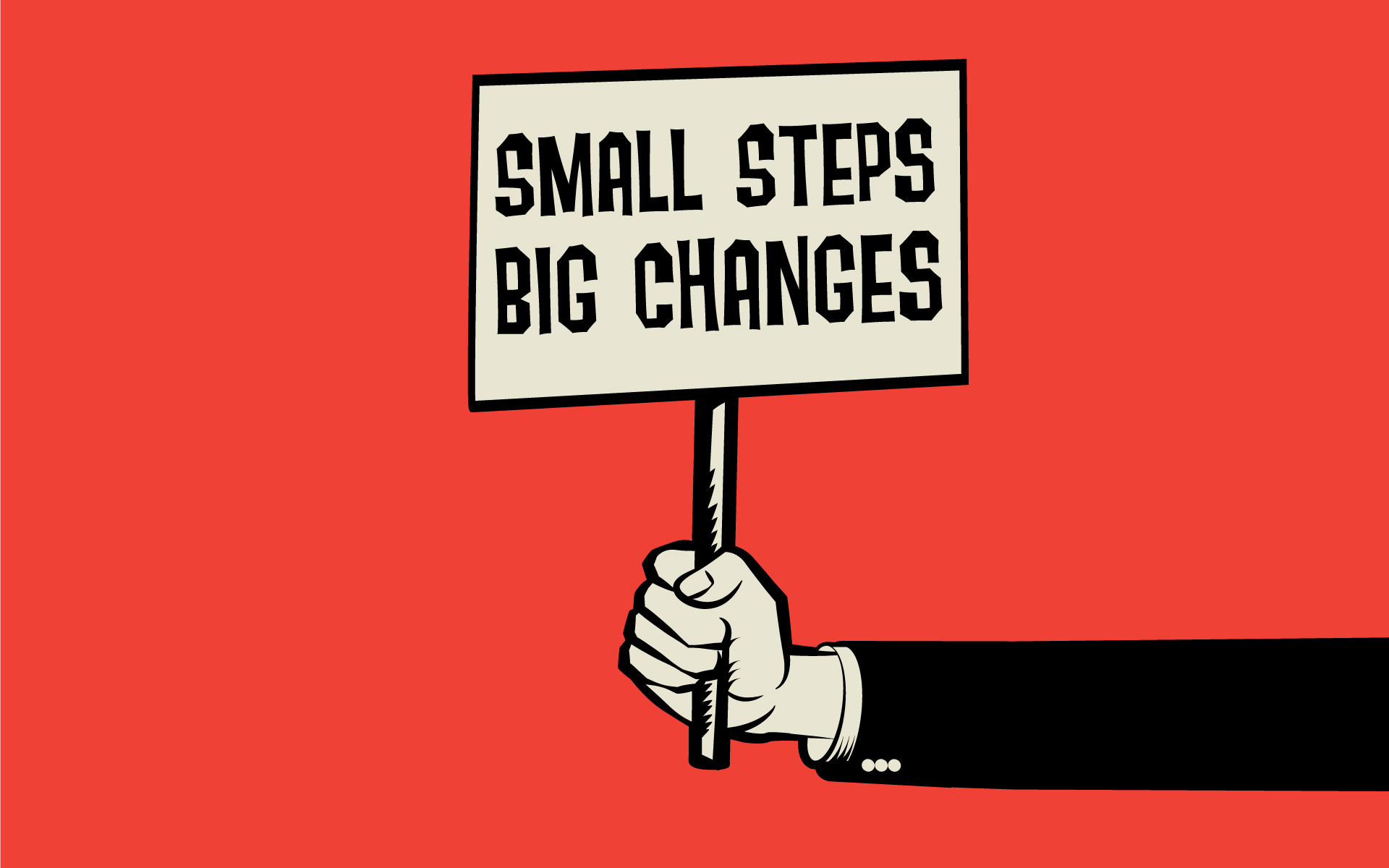Small things can make a big difference when it comes to achieving your goals and establishing lasting positive results. Here’s how to make change stick in 2021.
You do it every year. Some years more urgently than others, but every year nonetheless. It might be around performance-appraisal time at the office, or – more likely – it might be around late December or early January, when you write up an ambitious list of new year’s resolutions. That’s a good thing. As business consultant Bryan Tracy pointed out in his bestselling book, Goals!, people who set goals tend to be more comfortable with risk and more energised by change.
Unfortunately, many goals (and especially new year’s resolutions) are never met. And that’s a very bad thing. Why? Because failure breeds the belief that you cannot change – and, by extension, that you shouldn’t bother trying. But you should – you should just do it differently.
Scientific research offers many great ways to making this year’s resolutions different. And here’s a big one: Instead of setting big, ambitious goals this year, we suggest you start thinking small. So instead of, for example, deciding that you’re going to hit the gym, go on a diet and lose 10kg, try looking at the little things you could do better. According to a 2013 Australian study, “small changes in nutrition and physical activity behaviours can prevent weight gain. In the context of weight management, it may be more feasible for most people to make small compared to large short-term changes in diet and activity.”
Those small changes are what author James Clear calls “Atomic Habits”. In his book, Atomic Habits: An Easy And Proven Way To Build Good Habits And Break Bad Ones, Clear writes that it’s easy to overestimate the importance of one defining moment and underestimate the value of making small improvements on a daily basis.
“Too often, we convince ourselves that massive success requires massive action,” he writes. “Whether it is losing weight, building a business, writing a book, winning a championship, or achieving any other goal, we put pressure on ourselves to make some earth-shattering improvement that everyone will talk about. Meanwhile, improving by 1 percent isn’t particularly notable – sometimes it isn’t even noticeable – but it can be far more meaningful, especially in the long run.”
Clear likes to think of habits as being “the compound interest of self-improvement”. So in the same way that money multiplies through compound interest (first slowly, then significantly), Clear argues that the effects of your habits multiply as you repeat them. “They seem to make little difference on any given day, and yet the impact they deliver over the months and years can be enormous,” he writes. “It is only when looking back two, five, or perhaps ten years later that the value of good habits and the cost of bad ones becomes strikingly apparent.”
That imprecise timeline lines up with what science tells us about how habits form, and how they lead to lasting change. A University College London study, published in the European Journal of Social Psychology, found that the amount of time it takes for a habit to become entrenched (charted as the “asymptote of automaticity”) could range from a few weeks to a few months. “The time it took participants to reach 95% of their asymptote of automaticity ranged from 18 to 254 days; indicating considerable variation in how long it takes people to reach their limit of automaticity and highlighting that it can take a very long time,” the study authors wrote.
The good news is, a single slip-up isn’t the end of the world. “Missing one opportunity to perform the behaviour did not materially affect the habit formation process,” the authors noted, adding that: “With repetition of a behaviour in a consistent context, automaticity increases following an asymptotic curve which can be modelled at the individual level.”
In other words, the behavioural change that comes from new year’s resolutions and similar goalsetting depends on the kind of goals you are setting – and on how well you know yourself. As a 2017 study published in the American Journal of Lifestyle Medicine pointed out, “simply setting a goal seldom leads to actual behaviour change [for many people]. For some, identifying an appropriate goal is difficult, while for others, putting goals into action is the roadblock.”
The author of that study suggested two strategies that could help in setting and achieving goals: first, you need to set appropriate and feasible goals; and second, you need a plan to put your goals into action. This requires self-knowledge. How do you like to be rewarded? And while it’s good to know what your goal is, are you clear on how – and, more importantly, why – you’re hoping to achieve it?
As Bryan Tracy wrote, “Reasons are the fuel in the furnace of achievement… The more reasons you have, the more persistent and determined you will be. The more reasons you have, the more you will be willing to move out of your comfort zone, take risks, and move ahead more aggressively. People succeed greatly because they have big, exciting reasons that propel them forward.”
So, what are yours?

Leave a Reply